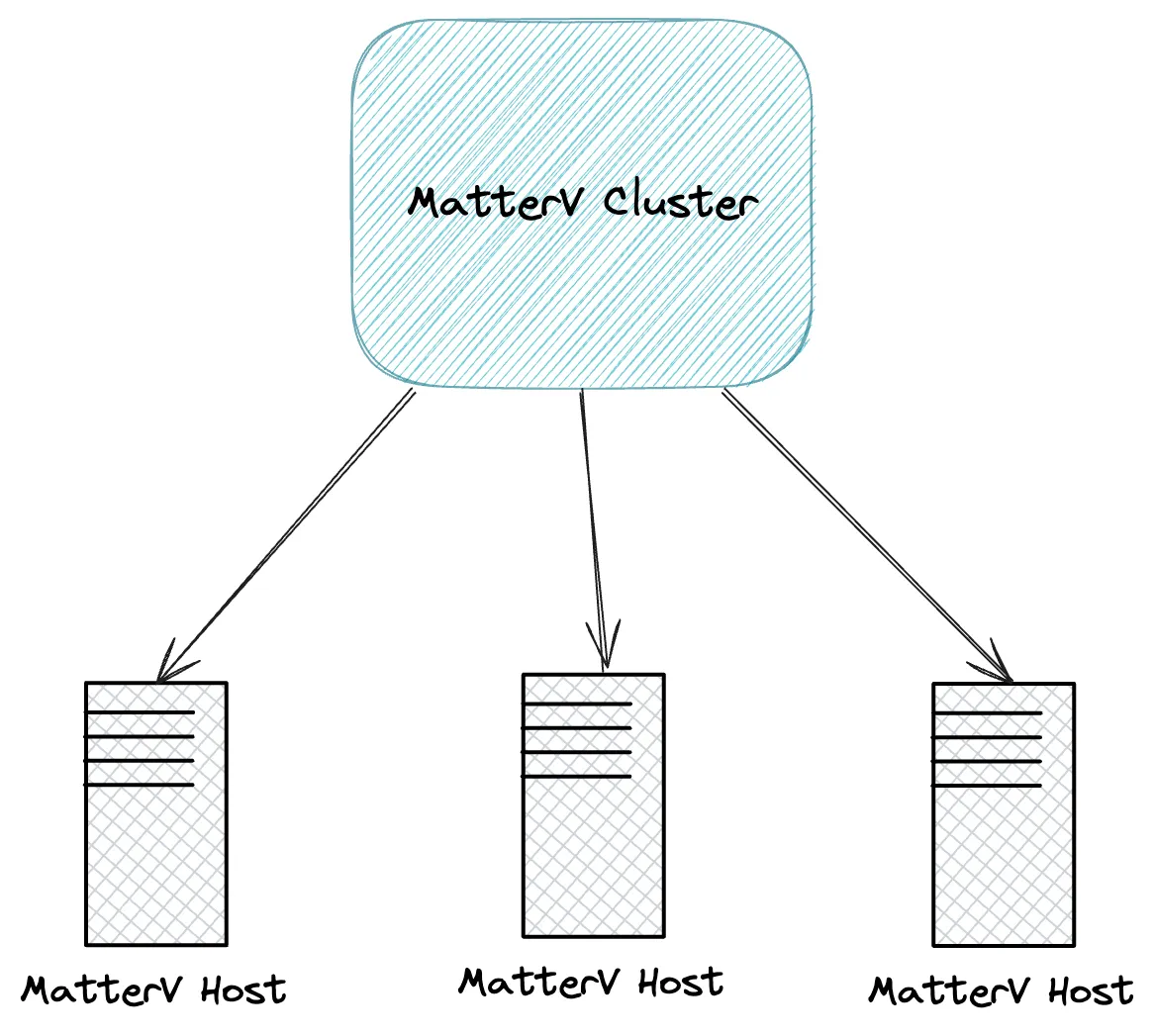Why MatterV?
MatterV is an open-source Virtual Machine management platform built on RHEL/AlmaLinux. It provides streamlined VM management with focus on usability, reliability, and performance.
Core Features
- Modern User Interface: Clean, minimalist design with responsive layouts, dark/light themes, and streamlined workflows that simplify VM management for both novice and advanced users.
- Automated upgrades: Unified upgrade system that updates all components (hypervisor, management tools, OS) with a single click, ensuring seamless version compatibility and forward upgrade path.
- Performance Optimization: Smart resource management system that dynamically allocates compute resources based on real-time usage patterns and workload demands.
- Enterprise Linux Foundation: Built on RHEL/AlmaLinux for 10+ year support lifecycle, extensive hardware compatibility including legacy systems, and enterprise-grade stability with minimal resource requirements.
Architecture

MatterV Cluster
A centralized management layer that orchestrates multiple MatterV hosts, providing:
- Unified management interface
- Resource allocation across hosts
- High availability coordination
- Centralized monitoring and control
MatterV Hosts
Individual compute nodes that:
- Run virtual machines
- Handle local resource management
- Connect to the central cluster for coordination
- Operate independently if cluster connection is lost
Communication Flow
- Cluster broadcasts management decisions
- Hosts report status and metrics
- Inter-host communication for live migration
- Automatic failover coordination
High Availability
Host Failure
- VMs automatically migrate to healthy hosts
- Resources redistributed automatically
Network Partition
Host-Cluster Partition
- VMs continue running without interruption
- Host maintains full local management capability
- All VM operations (start/stop/restart) remain available
- Host automatically resynchronizes when connection restores
Host-Host Partition
- Each host continues operating independently
- Local VMs remain fully functional
- No impact on VM performance or availability
- Automatic state reconciliation upon network recovery
Complete Network Isolation
- Host maintains all critical operations
- VMs run at full performance
- Local management interface remains accessible
- No dependency on external connectivity